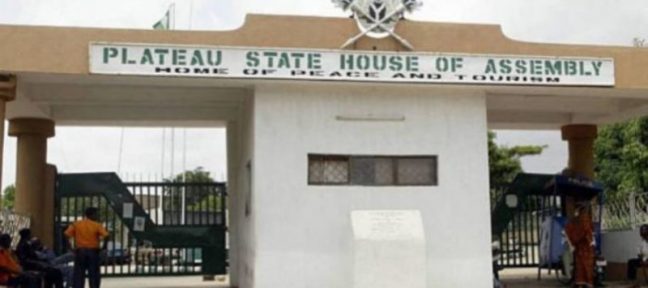The Plateau Assembly crisis
There has been political tension in the restive Plateau State since October 27, 2021, when some members of the 24-member House of Assembly convened and ‘impeached’ the speaker, Mr Nuhu Abok Ayuba. They replaced him with another lawmaker, Mr Yakubu Sanda, who was immediately presented to the state Governor, Mr Simon Lalong, through the Secretary […]

There has been political tension in the restive Plateau State since October 27, 2021, when some members of the 24-member House of Assembly convened and ‘impeached’ the speaker, Mr Nuhu Abok Ayuba.
They replaced him with another lawmaker, Mr Yakubu Sanda, who was immediately presented to the state Governor, Mr Simon Lalong, through the Secretary to the State Government, Prof. Danladi Atu. The governor welcomed the new speaker and “formally congratulated [him] for accepting the leadership of Plateau State House of Assembly.”
However, the purportedly impeached speaker, Mr Ayuba, having been locked out of the House of Assembly, convened a session with his supporters at a community hall in Zawan and suspended Mr Sanda and five other lawmakers loyal to him. Conversely, Mr Sanda also suspended Mr Ayuba, his supporters and called for their arrest. This resulted in the lawmakers loyal to Mr Ayuba, including Mr Ayuba himself, being escorted off the Assembly premises by armed police officers.
The situation has degenerated beyond a political squabble in the House into the streets with dozens of people staging protests that ended in confrontations between rival political thugs. Several people were injured and the doors and windows of the Assembly building were smashed.
In a state with a delicate web of peace such as Plateau, protests like this could easily escalate to a complete breakdown of law and order and result in mayhem.
The police have intervened with the Inspector General, Alkali Baba appointing the AIG Zone 4, Mustapha Dandaura, to mediate between the two factions of the House.
A legislature that should have oversight function over other aspects of governance should not be seen surrendering its enterprise to the executive. The fact that people entrusted to make laws for the wellbeing of their electorates have so abused the law to the point of necessitating a police mediation and the closure of the hallowed halls of the Assembly does not reflect well on the lawmakers.
There are laid down laws to address such situations. Section 19(2) of the 1999 Constitution demands that for any impeachment to be lawful, a 2/3 majority is required. Till date, it is not clear how many persons actually carried out the impeachment, as media reports in some sections say eight while others say 15. This brings into serious question the legality of the action taken by the Sanda-led faction of the Assembly. This development has also given thugs and other criminals avenues to disturb public peace.
This is a dangerous and rather embarrassing development that should not be condoned or excused at this stage of the country’s democratic growth. It is a major setback considering how far the country has come from the early days of democracy where such incidences of some persons with the backing of some members of the executive sneak into the chamber at irregular hours to subvert the wish of the majority.
Governor Lalong’s public denial of any involvement in the assembly crisis contradicts starkly his government’s action of endorsing and recognising Mr Sanda as the new speaker. Mr Lalong himself, having been a speaker, who was illegally removed, should know better than to give room for such brazen transgression to play out under his watch.
It is also important to emphasise that Mr Abok is not blameless in the whole kerfuffle playing out in the state. His previous call for people to take up arms is divisive, incendiary and capable of eroding whatever inroads the peace-building initiatives in the state have yielded over the years. Rather than inviting thugs to help settle this political fracas, legal avenues, such as the courts, should be explored.
There are legal ways of effecting leadership change in the legislature. What happened in Jos is not one of those ways and should not stand. The rule of law must be seen to prevail, especially in a situation as delicate as this and in a state as fragile as Plateau.
All relevant authorities and parties must, therefore, come together to ensure that Nigeria is not taken back to the stone age of our democracy and ensure that the right thing is done in resolving the assembly crisis in Plateau State according to the dictates of the law. We must put an end to impunity and do everything possible to consolidate democracy.
